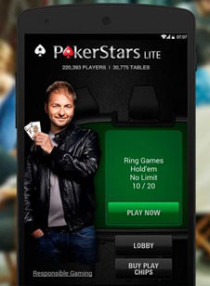Is Social Gaming a Form of Gambling?
 Though social gaming is a far more accepted and far less regulated phenomenon than old-school gambling, they are virtually all the same from a psychological point of view. Everyone on Facebook runs into invitations from friends to some online games and everyone sees friends posting their latest achievements regarding such games, yet virtually no one considers them as gamblers. Social gambling basically appeared together with the internet, first in the form of fun-play casino games and online poker sites. Money wasn’t involved at first, at least not at large, but after the explosion of real-money sites, new operators have drained lots of players from these fun-play sites. There is a similar tendency in social gambling now, as these fun-play destinations try to convert into real-money typically by offering more for paying users. However, even without involving any cash, social gaming and gambling are more similar to each other psychologically than many would think. Realizing this could improve the attitude towards gambling and could also bring the need of regulating social gaming like gambling. Video gaming is just like gamblingMany Facebook gambling apps are free to play but to reach further achievements players need to invest money or mobilize their friends to help them. The points of these games are always the same, as users have to spend as much time playing as possible to reach higher and higher achievements. Some online poker and casino destinations recognized the potential of this method and the scale of the pool of young players brought up playing social games recently, and they introduced this kind of achievement-focused structure. Actually the very same psychological drives are behind the actions of keen gamblers and those who are obsessed with video games. Dr. Mark Griffiths at Nottingham University’s International Gaming Research Unit compared the behavior of slot machine players to video gamers as early as 1991. The only remarkable difference between the two groups was that slot players were playing for money, while video game players were collecting points. However, Dr. Griffiths argued that money has the same meaning for gamblers as for video gamers: they regard it as points serving for scoring, as all of them are aware that they won’t earn any money on the long run. Their real goal is to remain in the game as long as possible – exactly the same as for video game players. And it is the same for new social gamers, for Texas Hold’Em players and for Facebook slots players: they have to make a deposit first, then they try to stay in the game as long as possible. Social slots even have the opportunity to manipulate odds to generate winning streaks and tie players even more to the games. When this happens, there is a possibility that users will get the wrong impression, that they would have been millionaires had playing in real money. However, this is not true, as real slots operate with totally different odds. Manipulating the user, regulating gamingPlayers are also manipulated when playing these addictive social games or video games, as they use psychological techniques to keep the users in front of the screen. Dr. Griffiths outlined that spending too much time playing with these games is almost as damaging as any form of addiction. “It’s not just about money loss,” he said. “The time loss can be equally important in terms of the negative impact on somebody’s life.” In Australia, any social gambling with real-money purchases is banned similarly to online cash gambling. Nevada gambling laws introduced lately to regulate recently launched poker sites also regulates social gambling. Though, in the UK there is no such law in effect, as the Gambling Commission doesn’t consider these social gambling apps, where no money involved necessarily, as gambling. There were recent attempts from social gaming operators to go into real-money gambling, however it seems that users involved in social gaming are not really into spending money on it. They only spend time, so in this regard their group differentiates from those who like to gamble in cash. Still, considering the nature of the two, they can’t be more similar. After recognizing this, a natural need could emerge everywhere for equally regulate social gaming and online gambling. Unregulated social gaming could be way more harmful than well-regulated gambling, so measuring everything with the same standard would be the best for every player and potential player. |










